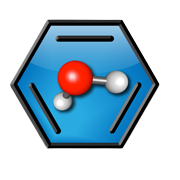What Runs Where on Athena
The Athena FAQs page has a long list of modules that are available in Athena. In particular, I find that the languages module allows me to have the ability to run PHP scripts within my Athena environment without too many configuration headaches. I use Apache, Perl and PHP scripts for several websites. I found that it wasn’t too difficult to find modules for all the languages that I use.
One problem I ran into with the languages module was that it didn’t seem to be working on all versions of Athena (at the time). There were some versions that would work but the ones that wouldn’t were a real pain. What Runs Where On Athena? languages seems to work on both the latest stable release and the Beta releases. However, I haven’t had any luck finding the version of the languages module that’s actually included with the latest releases of Athena.
There are a couple of problems with the Language module. First of all, it has to be installed as a separate module in order to run with Athena. Since there’s not a way to tell which versions of Athena support language modules, many of these modules won’t be installed unless you have your own copy of Athena itself. You can avoid this problem by using one of the many other language modules that can be downloaded directly from the Athena homepage.
There are several reasons why one would want to install another module on their Athena system other than What Runs Where On Athena. It would make sense to install a modal window manager such as Awesome, for example, if your workspace contains many programs that share a common header, such as a terminal or a web browser.
I also found it interesting that you can install any number of plugins into the Athena editor itself. There is no need to have a separate plugin manager.
One thing you should be aware of is that while the Athena language package comes with the libraries to read files from the Windows registry, it does not come with a module to load any other plugins. .dll files from a program. A simple search of the internet will reveal modules that you can download to load plugins from.
My favorite plugins are those that add extra functions to the built-in features of the language module, such as help or error messages. I use these as a reference for when I’m trying to find out something more about the language I’m working with.
Another feature that is included with the Athena language package is NCRurses. This is a library that have a few functions, but the main ones include creating, editing and loading files from the Windows registry. This is an important feature if you want to make sure your files are always working with the latest version of the language modules.
The only thing that I really like about the built-in library of NCRurses is that it requires an install of the NCRurses runtime library. If you don’t already have the runtime library installed, it will need to be installed with Athena.
If you want the best of the language without having to get involved with downloading the runtime library, you should try installing the package with Athena. It will provide most of the functions for you, but it won’t have as many built-in features. In fact, the only built-in features are for loading a specific text file that provides some basic help and for viewing the syntax and spelling of the given string. There is no built-in function for using the language to edit the settings of the library.
It takes quite a while to install the package, so it’s up to you if you’re going to do it yourself or use a third-party package to install it on your system. If you choose to use a third-party package, you should be aware that it will require you to be able to install the language package on your own computer. I know that installing the language package on my own computer, I didn’t have much trouble.

